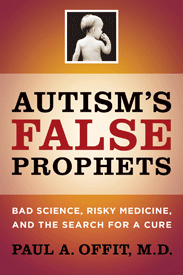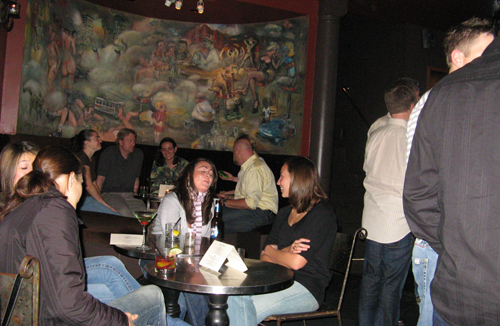One of the reasons non-scientists see science as at all valuable is that scientific research may result in useful medical treatments. And one of the aspects of science that seems elusive to non-scientists is just how long it can take scientific research to bring those useful medical treatments about.
In the 5 September 2008 issue of Science, Despina G. Contopoulos-Ioannidis, George A. Alexiou, Theodore C. Gouvias, and John P. A. Ioannidis [1] present research that examines just how long it has taken to get from initial discoveries to medical interventions.
Author Archives: admin
Blogger Challenge 2007 thank-you poem: narcolepsy.
Near the end of our 2007 DonorsChoose Blogger Challenge, I received a generous donation from a reader who asked if I could write a poem about narcolepsy.
I’m a little late in paying up, but better late than never. Here it is:
Two more ScienceBloggers mount DonorsChoose challenges!
See, I told you more ScienceBlogs bloggers would jump into the fray for our DonorsChoose Blogger Challenge 2008.
Challenges have been mounted by:
A Blog Around the Clock (challenge here)
The Quantum Pontiff (challenge here)
Watch the ScienceBlogs leaderboard to see if they catch up.
In other news, the motherboard would seem to indicate that the tech blogs, mommy blogs, topical/local blogs, and BlogHer are currently leaving us in their dust. I wonder if fans of science will remedy that …
Book review: Autism’s False Prophets.

Paul A. Offit, M.D., Autism’s False Prophets: Bad Science, Risky Medicine, and the Search for a Cure. Columbia University Press, 2008.
Autism’s False Prophets: Bad Science, Risky Medicine, and the Search for a Cure examines the ways that uncertainties about autism’s causes have played out in the spheres of medical treatment, liability lawsuits, political hearings, and media coverage. Offit’s introduction describes the lay of the land in 1916, as polio epidemics raged. That lay of the land, with public fear and willingness to pursue strange, expensive, and dangerous treatments, evokes a strong parallel to the current public mood about autism. It also evokes the hope that our current state is a “before” that (like polio’s “before”) will be followed by an “after” where sanity prevails about autism’s causes and treatments.
DonorsChoose Blogger Challenge 2008: fund classroom proposals, help kids.
It’s October, which means ScienceBlogs bloggers are, once again, participating in the DonorsChoose Blogger Challenge. The idea behind the drive is simple: we’re appealing to you, our readers, to help public school teachers across the U.S. fund proposals for classroom supplies, activities, and field trips. As I wrote at the start of our very first drive in 2006:
ScienceBlogs Book Club meets October 1-10.
The ScienceBlogs Book Club is back! The online fans of dead-tree books will be springing back into action tomorrow to discuss Autism’s False Prophets by Paul Offit. It’s worth noting that Dr. Offit himself will be participating in the discussion, so you won’t want to miss it.
I’m planning in joining the discussion, but first I will try to post a brief review of the book here. Stay tuned.
Periodic table of wow!
I suspect I’m late to the party on this one, but I just had occasion to check out The Periodic Table of Videos produced at the University of Nottingham. It’s a collection of 118 short videos (ranging in length from approximately one to ten minutes each), one for each of the elements currently in the Periodic Table of the Elements.
I did not watch all 118 of them, but the ones that I did watch covered, among other things:
Freelance chemistry for fun and (illegal) profit.
You know how graduate students are always complaining that their stipends are small compared to the cost of living? It seems that some graduate students find ways to supplement that income … ways that aren’t always legal. For example, from this article in the September 8, 2008 issue of Chemical & Engineering News [1]:
Jason D. West, a third-year chemistry graduate student at the University of California, Merced, was arraigned last month on charges of conspiring to manufacture methamphetamine, manufacturing methamphetamine, and possessing stolen property. West allegedly stole approximately $10,000 worth of equipment and chemicals from the university to make the illegal drug.
West, 36, pleaded not guilty to the charges and as of press time was in jail on $1 million bail. Police have found materials traced to West at three different meth labs and in one vehicle, says Tom MacKenzie of the Merced County Sheriff’s Department.
The police ended up arresting West following an investigation by UC-Merced campus police of the whereabouts of a vacuum pump that went missing from West’s graduate lab. Graduate students take note: your advisor will miss that expensive piece of lab equipment.
Against over-specialization.
In the 12 September, 2008 issue of Science, there is a brief article titled “Do We Need ‘Synthetic Bioethics’?” [1]. The authors, Hastings Center ethicists Erik Parens, Josephine Johnston, and Jacob Moses, answer: no.

